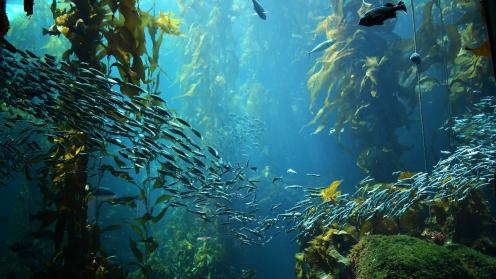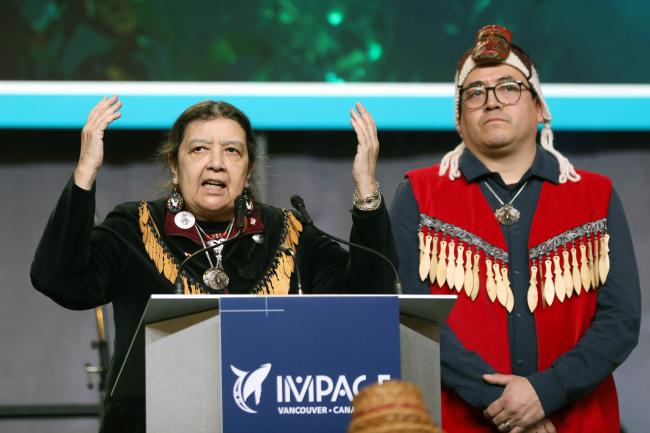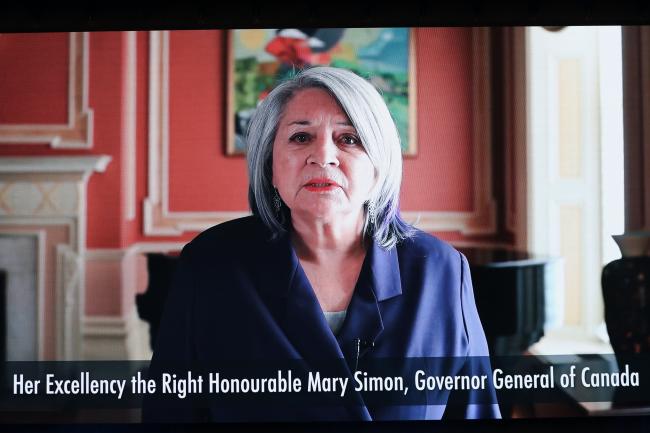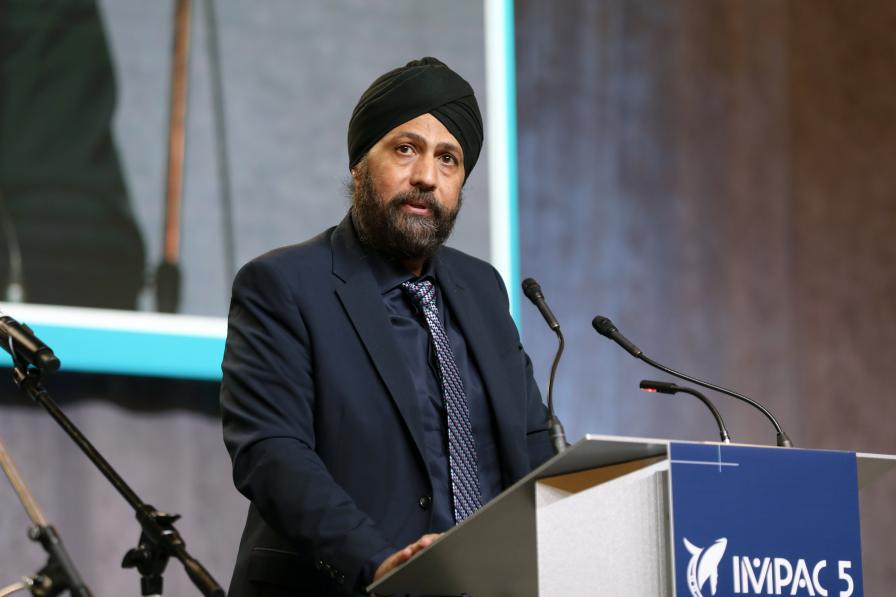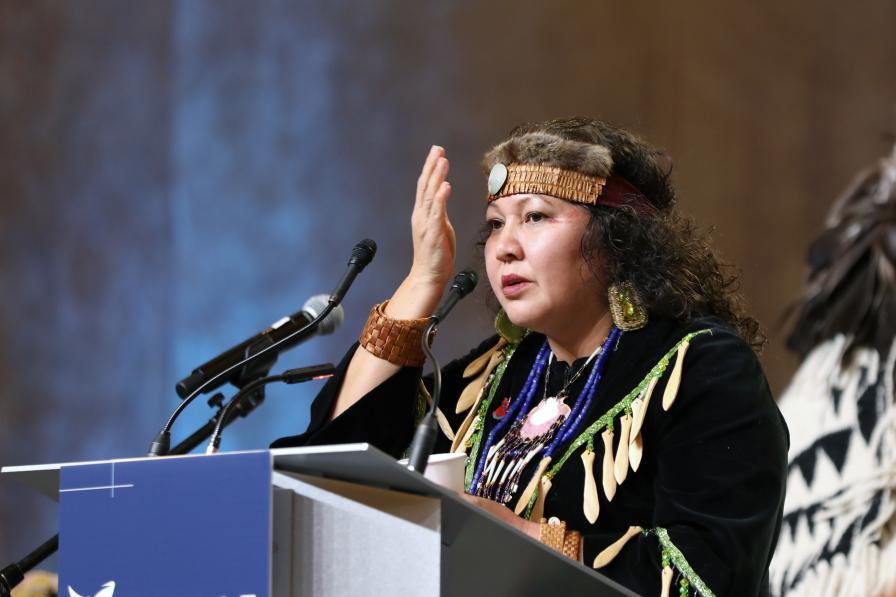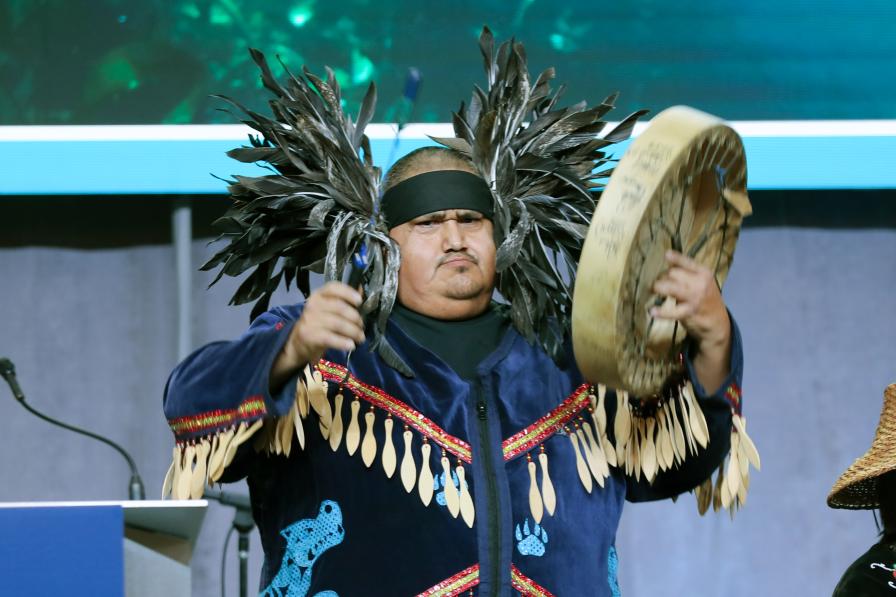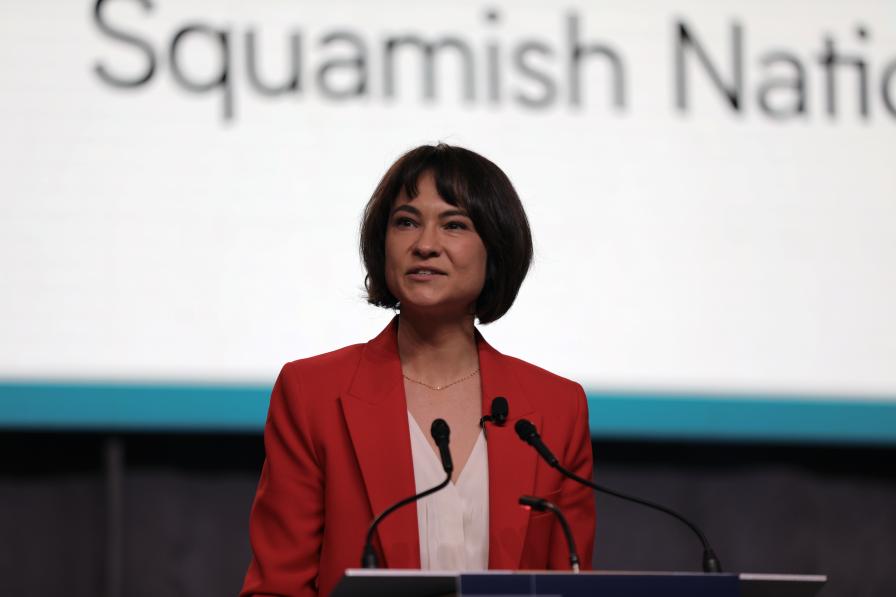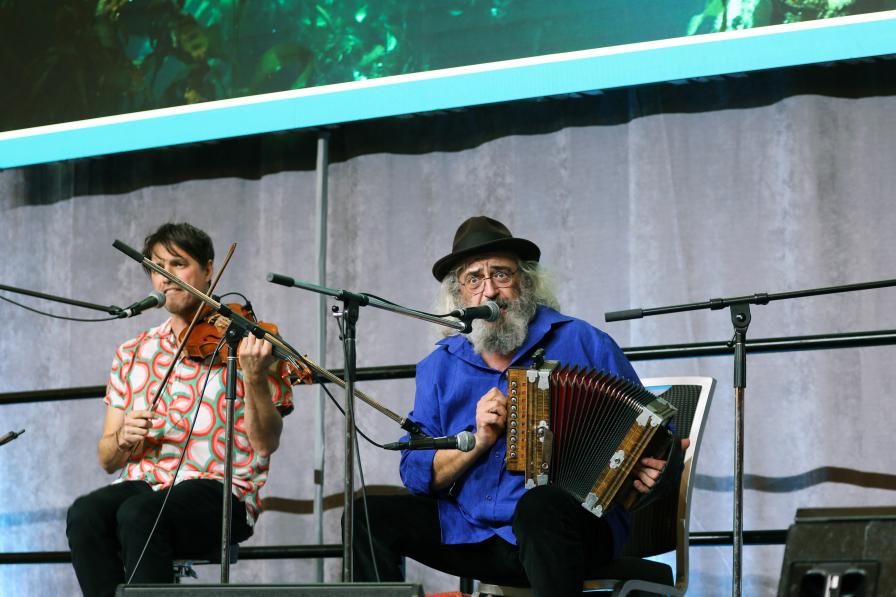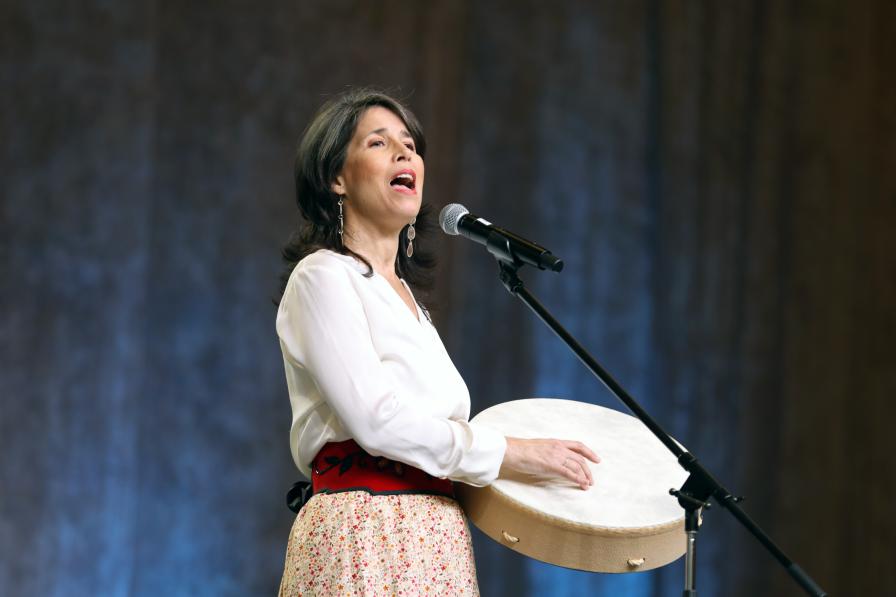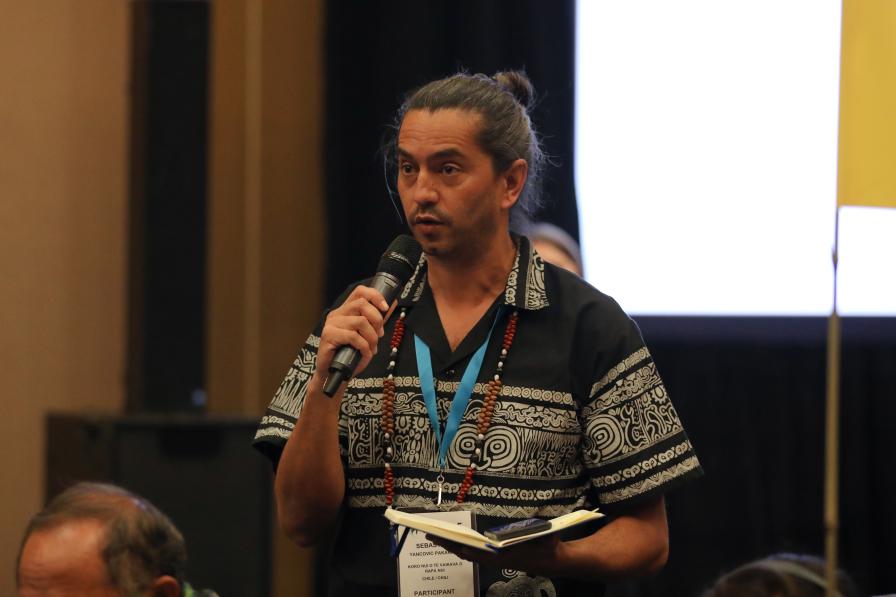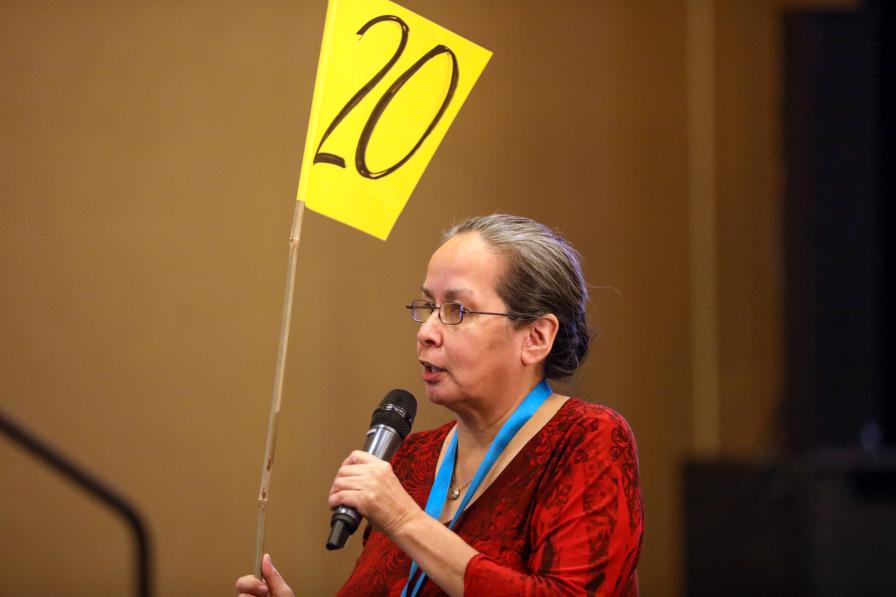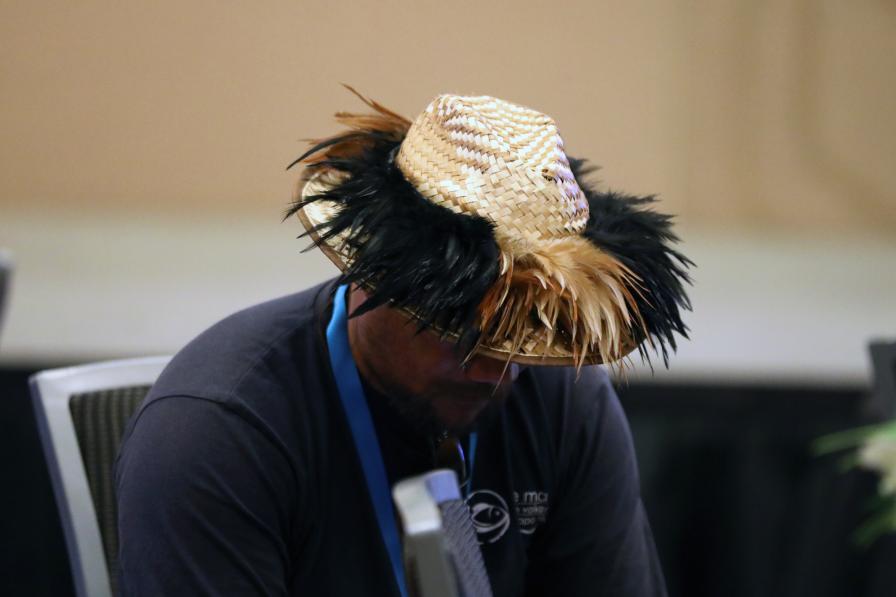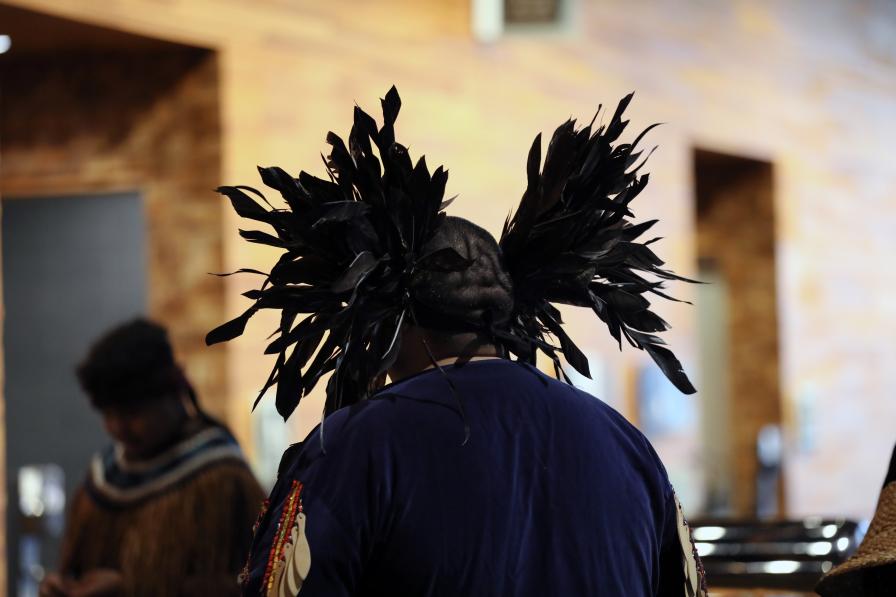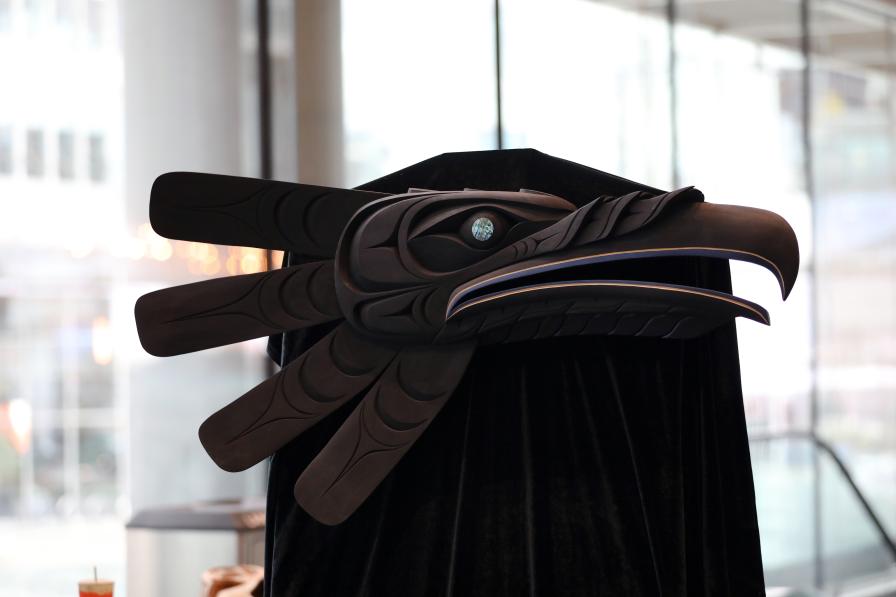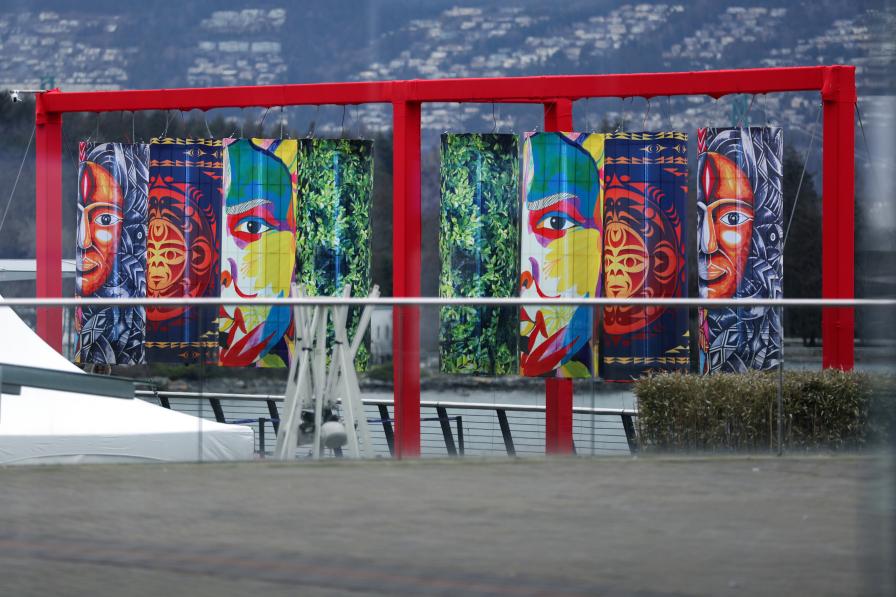Bringing together Ocean conservation professionals, Indigenous Peoples, youth, high-level officials and other stakeholders, the 5th International Marine Protected Areas Congress (IMPAC5), a global forum to address marine protected areas issues, convened on the unceded and ancestral territory of the Sḵwx̱wú7mesh Úxwumixw Squamish Nation, xʷməθkʷəy̓əm Musqueam Nation, and the səlilwətaɬ Tsleil-Waututh Nation.
The opening session was peppered with musical performances, including traditional song and dance of the Squamish, Tsleil-Waututh, and Masqueam Nations, and from Andrea Menard and the Yves Lambert Quartet. Representatives from the host First Nations expressed warm welcomes to participants, especially Indigenous leaders that travelled from far and wide. On behalf of the Masqueam Nation, elected Chief yəχʷyaχʷələq Wayne Sparrow reminded participants that his is a fishing Nation, and highlighted the importance of marine protection for the very survival of his people.
Want to dive deeper? Read the full Earth Negotiations Bulletin daily report.
Syexwáliya Ann Whonnock, elected councillor for the Squamish Nation, told participants how heartened and encouraged she felt by so many attending a conference for such important discussions. Sxwíxwtn Wilson Williams, elected councillor for the Squamish Nation, stressed the importance of these gatherings, saying that “our times today will define what unity means, how we will come together.” Charlene Aleck, elected councillor for the Tsleil-Waututh Nation, recalled the responsibility of her people as caretakers of the waters and lands shared amongst the First Nations hosts.
Joyce Murray, Minister of Fisheries, Oceans, and the Canadian Coast Guard, emphasized the vital role of the Ocean in people’s lives, serving as a source of food, protection, transportation, renewable energy, and solace, as well as acting as a natural carbon sink in the fight against climate change.
Amandeep Singh, British Columbia Parliamentary Secretary for Environment, noted the work with the First Nations in protecting the Ocean and preventing marine debris and plastic pollution.
Vladimir Ryabinin, Executive Secretary of the Intergovernmental Oceanographic Commission (IOC) of UNESCO, stressed the role of IMPAC5 in fostering the implementation of the recently adopted Kunming-Montreal Global Biodiversity Framework. Sandra Schwartz, Canadian Parks and Wilderness Society (CPAWS), highlighted the need for faster action and better protection of the Ocean, underscoring that “we are only 8 years” from needing to double the impact to reach 30% protection of the Ocean by 2030.
Madhu Rao, IUCN World Commission on Protected Areas (WCPA), stressed that the Ocean is facing unprecedented challenges due to overfishing, plastic pollution, and climate change and that marine protected areas (MPAs) can be the critical piece to address those challenges while drawing on traditional knowledge to advance solutions. She noted this Congress is an important opportunity to support the recovery of the Ocean.
The session concluded with remarks from Mary Simon, Canada’s first Indigenous Governor General, who noted that the “Ocean is a transformative power” and invited everyone to work on “healing the waters.”
All ENB photos are free to use with attribution. For IMPAC5, please use: Photo by IISD/ENB | Anastasia Rodopoulou.
To receive free coverage of global environmental events delivered to your inbox, subscribe to the ENB Update newsletter.
